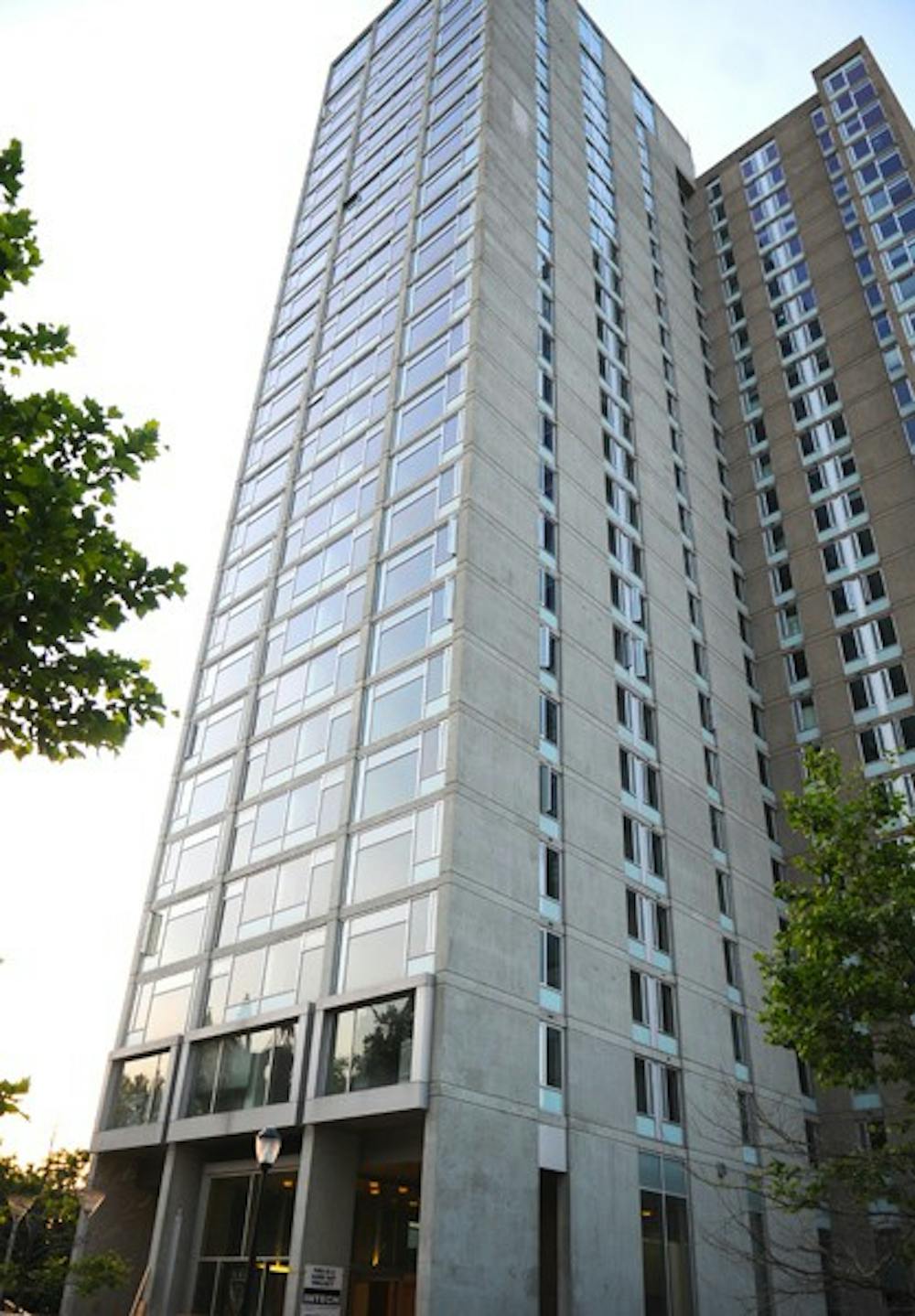Students entering Penn in 2016 might have an entirely different living experience than students do now.
As the new college house on Hill Field is set to be completed in the fall of 2016, student groups are now working with administrators to consider other major changes to the college house system. The potential changes include preventing freshmen from living in the high-rises, changing the timing of room selection and building larger group spaces and work-out areas in dorms.
Many of the changes — worked on by students with College House and Academic Services, Business Services and other departments — center around the completion of the new college house in fall 2016. When the building is finished, residents of Hill College House will be moved into the new college house so Hill can be renovated.
Danielle Golub, College junior and member of the Undergraduate Assembly, said the new college house will only have one or two floors by 33rd Street but will gradually become more elevated until there are five to eight floors on the 34th Street side.
The rooms are set to be suite-style living, although it’s not decided whether kitchens will be included. One of the major features of the college house will be a dining hall that must be entered from the inside but contains an outside area. Students will be able to overlook the dining hall from about 20 feet above while on Hill Field.
According to Golub, the UA hopes that the dorm will be a freshman-only dorm. “We would like to see a greater concentration of freshmen on the east side of campus to promote a better community environment for them,” she said. “It doesn’t really make sense to have freshmen living in Gregory or Stouffer.”
Related: Gregory College House pilots swipeless security system
However, freshman living is still a contentious point.
“Fifteen years ago, it was intended that all college houses would be four-year houses,” said Executive Director of CHAS Martin Redman. “But we also have an element of choice that we allow in the room selection process, so this isn’t going to happen. But if you want places like Stouffer and Du Bois and Gregory to be four-year houses, and they really can be great four-year houses, then we have to have freshmen in them.”
But UA President and College and Wharton senior Abe Sutton said he thought it would be better for freshmen to have a “real college experience by living in places like Hill or the Quad.”
Golub said that the UA hopes to see freshman removed from the high rises once Hill College House is renovated and there are extra bed spaces for freshmen in the new college house.
College sophomore and transfer student Adam Gross said, “You may be social in that you can be very tight with your suitemates, but good luck trying to meet and know everyone on your floor. Freshman year is when many make their best friends in college. The high rises are not the best place for such friendships to flower.”
Another issue on the table is room selection.
“One thing we’ve realized is important is timing,” Redman said. “If we wait until after spring break for room selection, then when students go home, they talk to their parents about it, and they become concerned that they won’t get a room on campus — and that they’re going to run out of time to get off-campus housing — so they just decide to live off-campus.”
Related: Students critique new housing-selection system
Golub said that the one of the main goals among administrators and student groups working on college house changes is to increase the number of students living on campus.
“Penn has a fairly low retention rate,” Redman said. “Even though just about 100 percent of freshmen live on campus, only 55 percent of sophomores live on campus, and the number drops to about 25 percent for juniors and seniors.”
However, Golub said that many of the changes currently under consideration lack a strong student voice. “The UA has had a really hard time coordinating with the residential advisory board on these issues,” she said. “This is why we’re creating RSAB.”
RSAB — Residential Services Advisory Board — is set to function as an independent body that researches the student opinion on potential renovations and policy initiatives. After undergoing ratification this semester, it is scheduled to begin meeting in January. Under its current constitution, all appointed members must live in college houses and stay on the board until they graduate. All living types will be represented, including freshmen, low-rise, graduate and high-rise.
RSAB is supposed to assist administrators with the creation of the new college house, renovations in Hill, freshmen living situations, the standardization of amenities in the houses and the creation and maintenance of residential programs, among other things.



